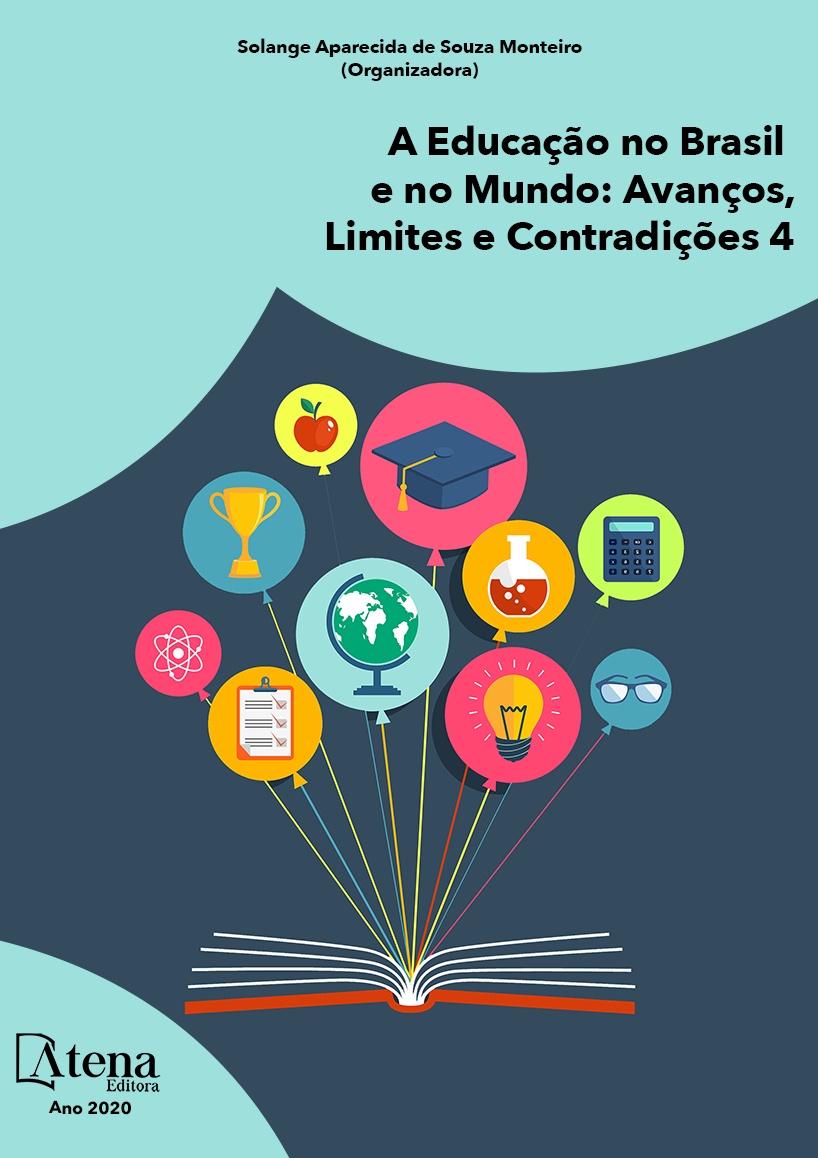
CURRÍCULO ADAPTADO: UMA PROPOSTA PARA ALFABETIZAR LETRANDO
Alfabetizar letrando serve como
base para todos os alunos que estão inseridos
no contexto escolar. Nesse sentido, este estudo
discorre sobre um projeto de pesquisa-ação
com uma prática pedagógica em uma turma
do terceiro ano das séries iniciais do Ensino
Fundamental. Esta pesquisa-ação justificase
por ser de cunho social e cultural, que visa
desenvolver atividades práticas para alfabetizar
letrando dentro de uma perspectiva de
educação inclusiva. Embora existam programas
governamentais que regulamentam o processo
de alfabetização, o contexto escolar mostra
uma realidade que reflete índices precários
da alfabetização no Brasil. Isso se deve
possivelmente à formação de professores, à
infraestrutura das escolas e aos “não-métodos”.
Alfabetizar sem letrar, conforme Soares
(2004), está desconectado das demandas de
práticas sociais que o cotidiano exige. Nesse
contexto, adaptou-se o conto “O Chapeuzinho
Amarelo”, na perspectiva de um currículo
aberto, utilizando propostas curriculares
diversificadas direcionadas ao entendimento de
todos os alunos. O objetivo foi eliminar qualquer
obstáculo que pudesse limitar a aprendizagem
e a participação de todos os alunos no processo
educativo.
CURRÍCULO ADAPTADO: UMA PROPOSTA PARA ALFABETIZAR LETRANDO
-
Palavras-chave: Currículo Adaptado. Educação Inclusiva. Letramento. Alfabetização
-
Keywords: Adapted curriculum. Inclusive Education. Literacy. Development write and read.
-
Abstract:
Development write and read wiht
literacy serves as the basis for all students who
are enrolled in the school context. In this sense,
this study discusses an action-research project
with a pedagogical practice in a third-year class
of the initial grades of elementary school. This
action research is justified by being of a social
and cultural nature, which aims to develop
practical activities for literacy literacy within an
inclusive education perspective. Although there
are governmental programs that regulate the
literacy process, the school context shows a
reality that reflects precarious indexes of literacy
in Brazil. This is probably due to the formation
of teachers, the infrastructure of schools and
the "non-Methods". Alphabetizing without literacy, according to Soares (2004), is
disconnected from the demands of social practices that everyday demands. In this
context, the tale "The Yellow Riding Hood" was adapted from the perspective of an
open curriculum, using diversified curricular proposals directed to the understanding
of all students. The objective was to eliminate any obstacle that could limit the learning
and participation of all students in the educational process.
-
Número de páginas: 10
- ANS TERESINHA ELICKER
- ROSEMARI LORENZ MARTINS
- Viviane Cristina de Mattos Battistello


